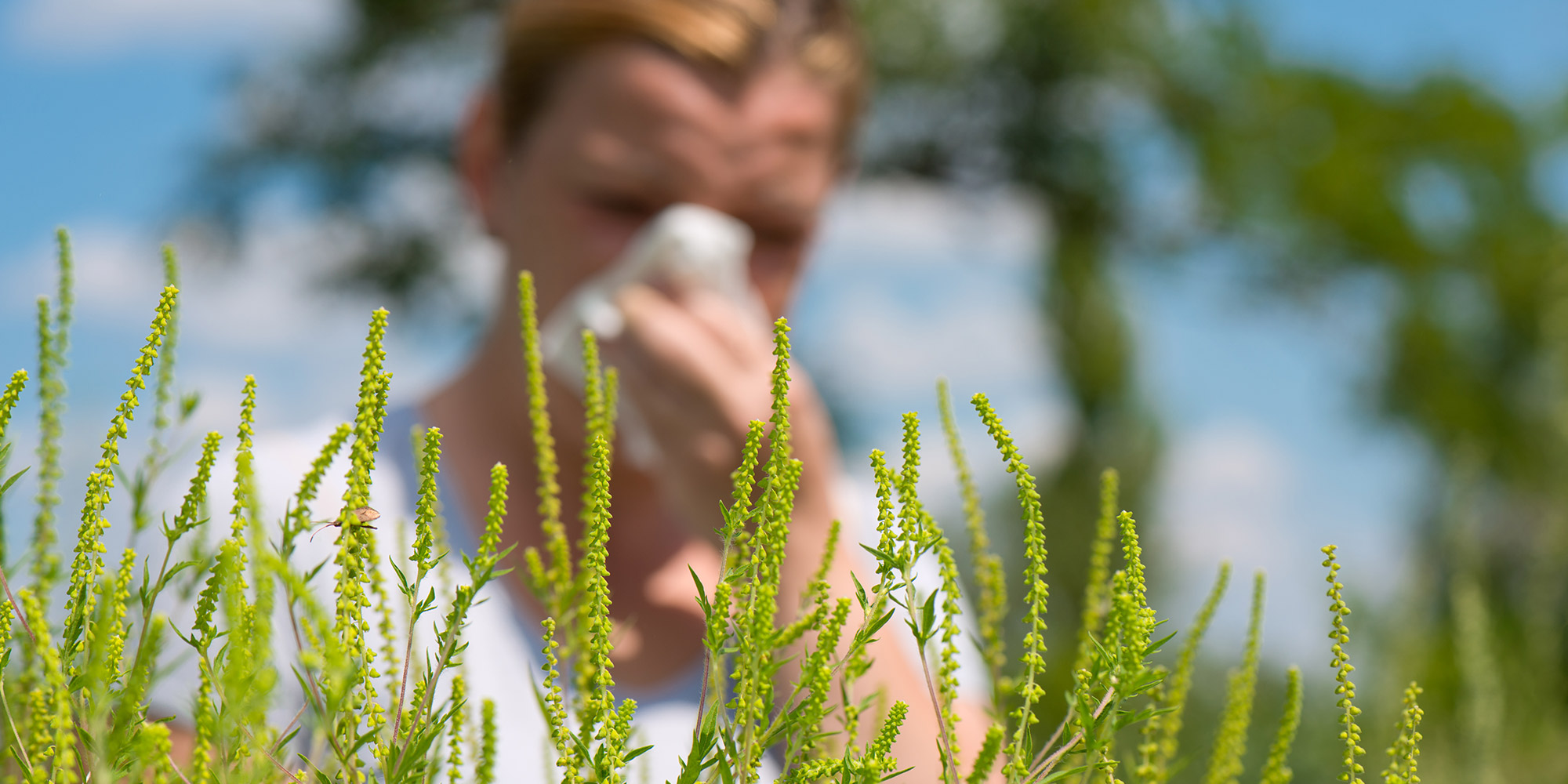Fall Allergy Season Returns with Rise in Ragweed Levels
August 26, 2021
Categories: Allergy & Immunology
Tags: Allergy Count
MAYWOOD, IL – Ragweed levels are on the rise as the summer months draw to a close, according to Rachna Shah, MD, a Loyola Medicine allergist who oversees the Loyola Medicine Daily Allergy Count.
“A spike in ragweed tends to mark the informal start of the fall allergy season, which typically begins in mid-August,” says Dr. Shah. "This time of the year, we see less tree and grass allergens and more mold and weed allergens."
The symptoms of seasonal allergies include itchy eyes, itchy nose, sneezing, runny nose, nasal congestion, headaches, ear itching or popping, post-nasal drip and throat irritation. And, as some allergy symptoms mirror those of COVID-19, seasonal allergy sufferers should be especially vigilant when adhering to treatment plans and precautions.
"We saw some allergy symptoms overlapping with COVID-19 during the height of the pandemic last year, including congestion, runny nose, headaches and throat irritation," said Dr. Shah, who explains the differences between allergy and COVID-19 symptoms in a Loyola Medicine video. "As we face another spike in COVID-19, it’s a good reminder to have your preventive allergy treatment plan in place."
For chronic allergy sufferers, seasonal treatment protocols—prescriptions, over-the-counter allergy medications and/or steroid nasal sprays—should begin as soon as possible, “as they may take a week or more to kick in.”
In addition, “allergy symptoms can worsen asthma, causing breathing difficulties, so it’s important that you have all of your asthma tools,” says Dr. Shah. “Make sure that your inhaler is up-to-date, not expired, that you have additional inhalers and refills on hand, and that you are taking preventive measures.”
Preventive measures can include modifying activities on days when allergen levels are particularly high.
“Pollen counts are highest in the beginning of the day – from dawn until 10 am,” said Dr. Shah. “Shifting activities to later in the day can help a lot.”
In addition, keeping windows closed on high allergy days, and/or rinsing off or changing clothes after being outside can help. To stay on top of what allergens are highest each day, visit the Loyola Medicine Daily Allergy Count web page (loyolamedicine.org/allergy-count), and/or follow the Loyola Daily Allergy Count Twitter page (twitter.com/LoyolaAllergy).
“Patients who are still suffering from allergy symptoms after adhering to their treatment protocols, taking preventive measures and/or modifying daily activities should be evaluated by a physician,” says Dr. Shah.
To schedule an appointment with a Loyola Medicine allergist, visit loyolamedicine.org or call 888-584-7888.
About Loyola Medicine
Loyola Medicine, a member of Trinity Health, is a nationally ranked academic, quaternary care system based in Chicago's western suburbs. The three-hospital system includes Loyola University Medical Center (LUMC), Gottlieb Memorial Hospital, MacNeal Hospital, as well as convenient locations offering primary care, specialty care and immediate care services from nearly 2,000 physicians throughout Cook, Will and DuPage counties. LUMC is a 547-licensed-bed hospital in Maywood that includes the William G. and Mary A. Ryan Center for Heart & Vascular Medicine, the Cardinal Bernardin Cancer Center, the John L. Keeley, MD, Emergency Department, a Level 1 trauma center, Illinois's largest burn center, the Nancy W. Knowles Orthopaedic Institute, a certified comprehensive stroke center, transplant center and a children’s hospital. Having delivered compassionate care for over 50 years, Loyola also trains the next generation of caregivers through its academic affiliation with Loyola University Chicago’s Stritch School of Medicine and Marcella Niehoff School of Nursing.
Established in 1961, Gottlieb Memorial Hospital is a 247-licensed-bed community hospital in Melrose Park that includes the Judd A. Weinberg Emergency Department, the Loyola Center for Metabolic Surgery and Bariatric Care, Loyola Cancer Care & Research at the Marjorie G. Weinberg Cancer Center, acute rehabilitation, a transitional care center, childcare center and fitness center. Founded in 1919, MacNeal Hospital is a 374-licensed-bed teaching hospital in Berwyn with advanced medical, surgical and psychiatric services and a 68-bed behavioral health program.
For more information, visit loyolamedicine.org. You can also follow Loyola Medicine on LinkedIn, Facebook, Instagram or X (formerly known as Twitter).
About Trinity Health
Trinity Health is one of the largest not-for-profit, faith-based health care systems in the nation. It is a family of 127,000 colleagues and more than 38,300 physicians and clinicians caring for diverse communities across 26 states. Nationally recognized for care and experience, the Trinity Health system includes 93 hospitals, 107 continuing care locations, the second largest PACE program in the country, 142 urgent care locations and many other health and well-being services. In fiscal year 2024, the Livonia, Michigan-based health system invested $1.3 billion in its communities in the form of charity care and other community benefit programs. For more information, visit us at www.trinity-health.org, or follow us on LinkedIn, Facebook, and X (formerly known as Twitter).
